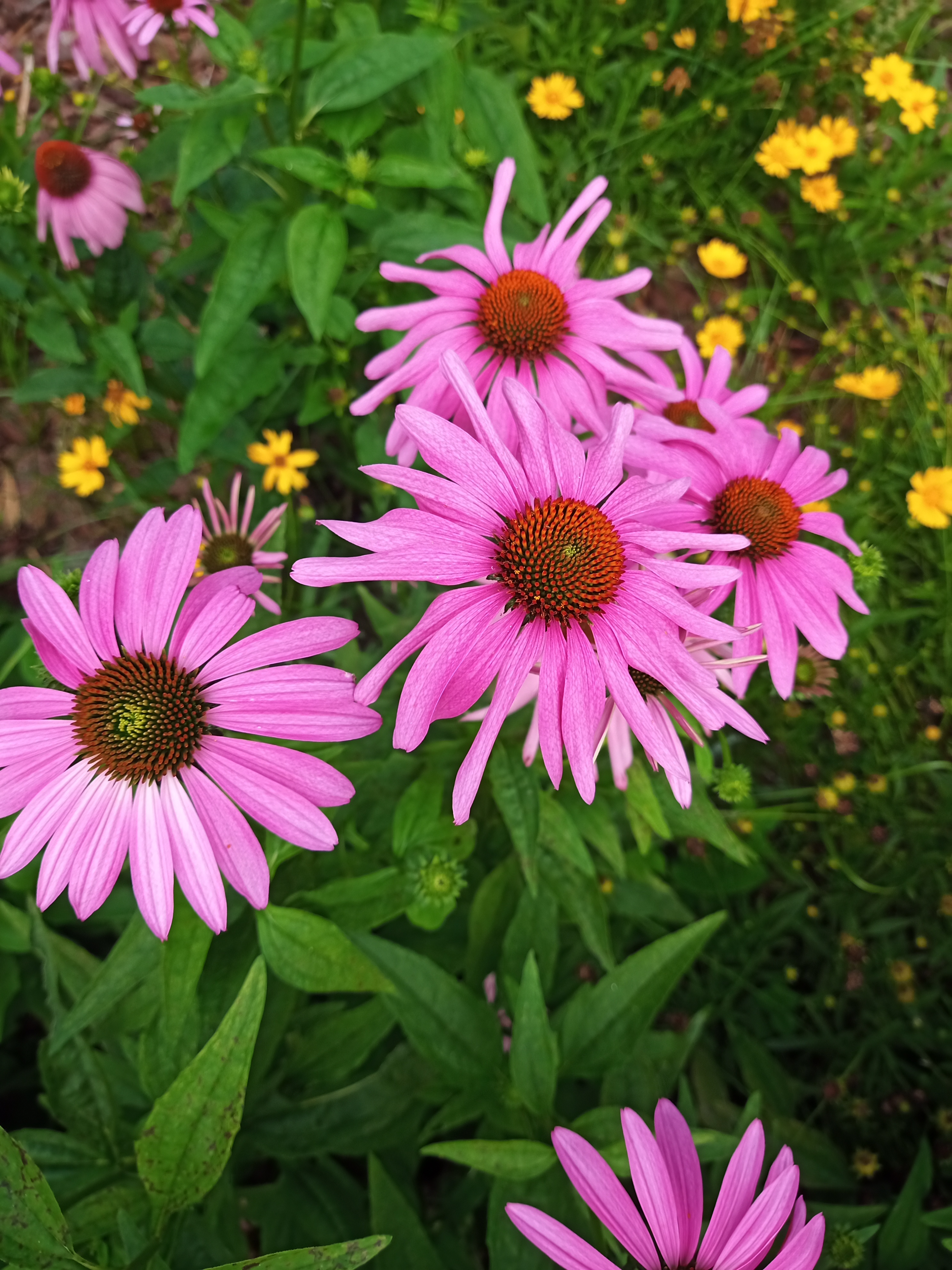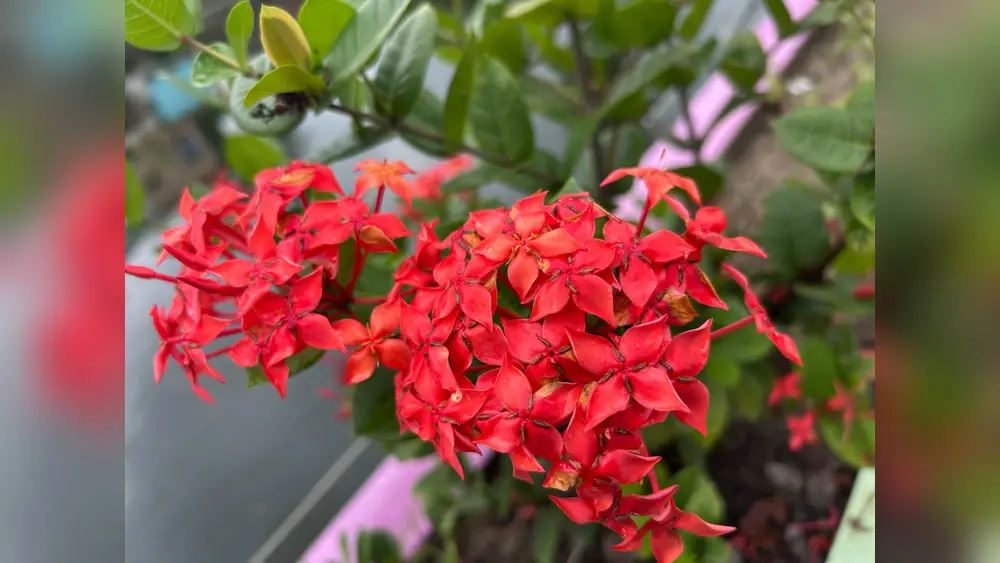Are you looking to boost your North Florida vegetable garden this season? Adding the right flowers can do more than just brighten your space—they can attract helpful pollinators, keep pests away, and even improve your vegetable harvest.
But with so many options, how do you pick the best flowers that thrive in North Florida’s unique climate? You’ll discover the top flowers that not only look beautiful but also support your vegetable garden’s health and growth. Keep reading to find out which blooms will make your garden flourish like never before.

Credit: nwdistrict.ifas.ufl.edu
Benefits Of Flowers In Vegetable Gardens
Planting flowers in vegetable gardens brings many benefits. Flowers help improve growth and yield of vegetables. They create a healthy garden environment and add beauty. Flowers attract helpful insects and keep pests away. They also improve soil quality. These advantages make flowers a smart choice for North Florida gardens.
Attracting Pollinators
Flowers attract bees, butterflies, and other pollinators. These insects carry pollen from one flower to another. This process helps vegetables produce fruits and seeds. More pollinators mean better vegetable harvests. Bright, fragrant flowers are especially good at attracting pollinators.
Pest Control
Certain flowers repel harmful insects naturally. Some flowers also attract beneficial bugs that eat pests. This reduces the need for chemical pesticides. Marigolds, nasturtiums, and sunflowers work well for pest control. They protect vegetables and keep the garden balanced.
Soil Health Improvement
Flower roots help loosen and aerate the soil. They add organic matter when they decay. Some flowers fix nitrogen, enriching the soil for vegetables. Healthy soil supports strong root systems and better water retention. Planting flowers improves soil life and garden health.

Credit: theshrubqueen.com
Climate Considerations For North Florida
North Florida has a unique climate that affects what flowers grow well in vegetable gardens. Knowing the climate details helps gardeners pick the best flowers. These flowers can boost garden health and beauty.
Temperature And Humidity
North Florida has warm temperatures most of the year. Summers can get very hot, often above 90°F. Winters are mild and rarely freeze. Humidity stays high, especially in summer. This warmth and moisture help many flowers thrive. Choose flowers that tolerate heat and wet air well.
Soil Types
The soil in North Florida varies from sandy to clay. Sandy soil drains water fast but has fewer nutrients. Clay soil holds water but may cause root problems. Many flowers do well in sandy soils if you add organic matter. Test soil and improve it with compost for best results.
Rainfall Patterns
North Florida gets most rain in summer. Thunderstorms are common from June to September. Winter and spring are drier. Flowers that handle wet roots and short dry spells do best here. Proper watering and drainage help flowers survive heavy rains and dry times.
Top Flower Choices For North Florida Gardens
Choosing the right flowers for North Florida gardens helps protect vegetables and attracts helpful insects. These flowers thrive in warm climates and add color to your garden. Planting flowers near vegetables can improve growth and reduce pests. Here are some of the best flower choices for North Florida vegetable gardens.
Marigolds
Marigolds are bright and easy to grow. They repel harmful insects that attack vegetables. Their strong scent keeps pests away naturally. Marigolds bloom all season, adding color to your garden beds. They also attract beneficial insects like ladybugs and bees.
Zinnias
Zinnias grow well in hot weather and full sun. They produce colorful flowers that attract pollinators. Bees and butterflies visit zinnias often, helping vegetable plants produce fruit. Zinnias are low maintenance and bloom for many weeks. They add beauty and life to your garden.
Sunflowers
Sunflowers grow tall and bright in North Florida gardens. They draw pollinators and birds that eat harmful insects. Their large heads provide shade for smaller plants nearby. Sunflowers also help improve soil by attracting beneficial insects. They create a cheerful garden atmosphere.
Cosmos
Cosmos are delicate flowers that love warm climates. They attract many pollinators such as bees and butterflies. Cosmos grow quickly and bloom through summer. Their airy foliage adds texture to vegetable beds. They are great companions for tomatoes and peppers.
Nasturtiums
Nasturtiums have edible leaves and bright flowers. They repel aphids and whiteflies from vegetable plants. These flowers attract beneficial insects that keep pests in check. Nasturtiums grow well in poor soil and need little care. Their peppery leaves can be added to salads.

Credit: theshrubqueen.com
Planting Tips For Success
Planting flowers in North Florida vegetable gardens can bring many benefits. Flowers attract helpful insects and improve garden health. To grow flowers well, follow some basic planting tips. These tips help flowers bloom strong and support your vegetables.
Best Planting Times
Plant flowers in early spring or fall in North Florida. These seasons have mild temperatures and good rain. Avoid planting in the hot summer months. Flowers grow better when the weather is cooler. Check local frost dates to pick the right time.
Soil Preparation
Prepare soil before planting flowers. Loosen the soil to allow roots to spread. Mix in organic compost to add nutrients. Good soil helps flowers grow healthy and strong. Avoid heavy clay soil or sandy spots without amendments.
Watering Needs
Water flowers regularly after planting. Keep the soil moist but not soggy. Deep watering helps roots grow deeper. Avoid wetting the leaves to prevent disease. Adjust watering based on rain and temperature changes.
Companion Planting Strategies
Companion planting is a smart way to grow flowers and vegetables together. It helps plants support each other naturally. Flowers can attract helpful insects and keep pests away. This creates a healthier garden with less work.
Pairing Flowers With Vegetables
Choose flowers that help your vegetables grow better. Marigolds protect tomatoes from harmful bugs. Nasturtiums attract aphids away from beans and peas. Sunflowers offer shade to leafy greens on hot days. These pairs improve vegetable health and yield.
Maximizing Space
Plant flowers and vegetables close to save garden space. Use vertical space with climbing beans near tall sunflowers. Low-growing flowers like alyssum fit well at the base of taller plants. This method lets you grow more in smaller areas.
Boosting Garden Health
Flowers can improve soil and reduce pests naturally. Some, like borage, add nutrients to the soil. Others attract pollinators that help vegetables fruit better. Healthy soil and more pollinators lead to stronger plants and bigger harvests.
Maintaining Flower Health
Maintaining flower health in North Florida vegetable gardens is key to a vibrant garden. Healthy flowers attract pollinators and keep pests away. Regular care ensures flowers grow strong and bloom fully. Simple steps can protect your garden’s beauty and productivity.
Pest Management
Check flowers often for signs of pests like aphids or caterpillars. Use natural methods such as neem oil or insecticidal soap. Introduce beneficial insects like ladybugs to control harmful bugs. Avoid harsh chemicals that can harm vegetables and pollinators. Early action stops pests from spreading and damaging plants.
Fertilization
Feed flowers with balanced fertilizer to support growth and blooms. Use slow-release or organic fertilizers for steady nutrient supply. Apply fertilizer during early morning or late afternoon to prevent leaf burn. Avoid over-fertilizing, which can cause weak stems and fewer flowers. Healthy soil leads to strong flowers and vibrant colors.
Pruning And Deadheading
Remove dead or faded flowers to encourage new blooms. Prune damaged or weak stems to improve air flow and plant shape. Use clean, sharp tools to avoid infections. Regular deadheading extends the flowering period and keeps plants tidy. Well-pruned flowers grow fuller and look more attractive.
Frequently Asked Questions
What Flowers Grow Best In North Florida Vegetable Gardens?
Marigolds, zinnias, and sunflowers grow best in North Florida vegetable gardens. They attract pollinators and repel pests naturally. These flowers thrive in warm climates and improve garden health.
How Do Flowers Benefit North Florida Vegetable Gardens?
Flowers attract beneficial insects like bees and ladybugs. They improve pollination and reduce harmful pests. This leads to healthier vegetables and higher yields in North Florida gardens.
When Is The Best Time To Plant Flowers In North Florida Gardens?
The best time is early spring or late summer. This timing avoids extreme heat and ensures flowers bloom alongside vegetables. It maximizes pollination and garden growth.
Can Flowers Protect Vegetables From Pests In North Florida?
Yes, flowers like marigolds repel harmful insects. They act as natural pest deterrents, reducing the need for chemicals. This protects vegetables and supports organic gardening.
Conclusion
Planting flowers in North Florida gardens helps vegetables grow well. Flowers attract helpful insects that fight pests naturally. They add color and beauty to your garden space. Choose flowers that suit your climate and soil type. Regular care keeps both flowers and vegetables healthy.
Enjoy the mix of blooms and fresh produce together. Your garden will thrive with these simple steps. Try planting some flowers this season and see the difference. Gardening can be easy and fun for everyone.

